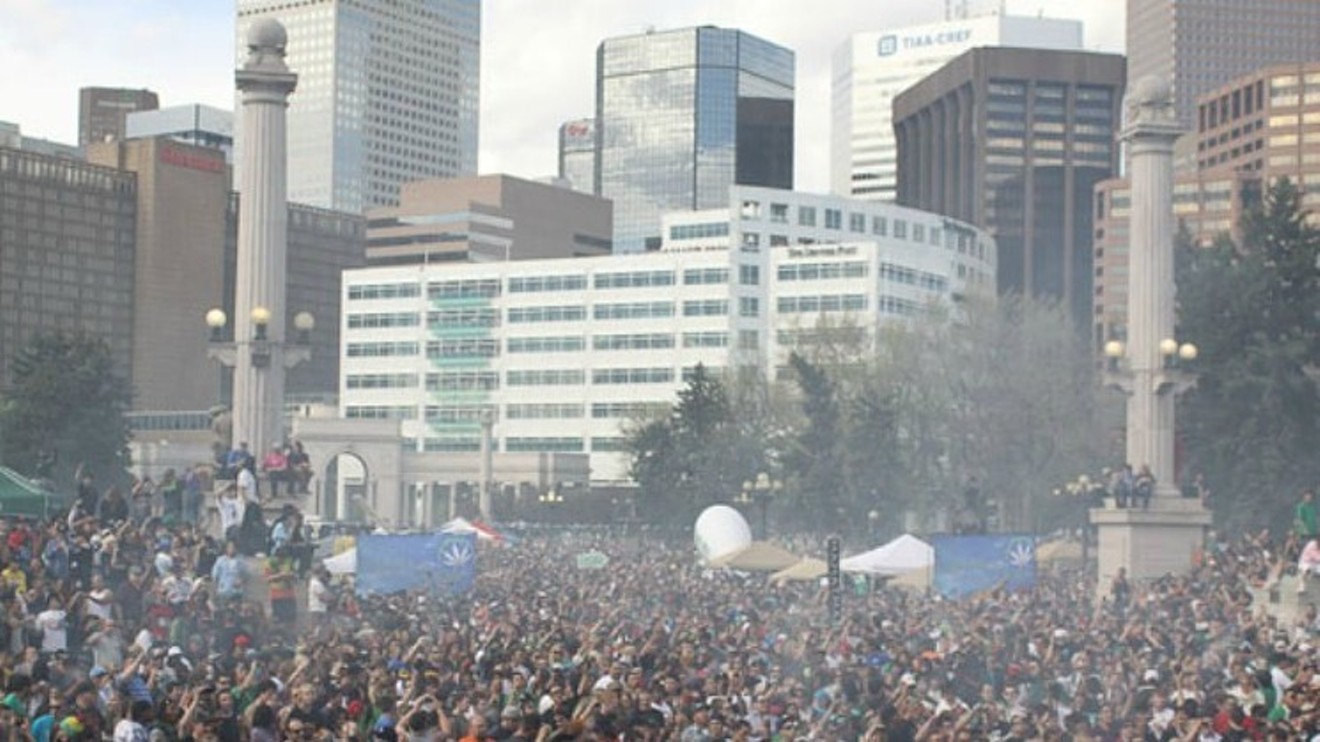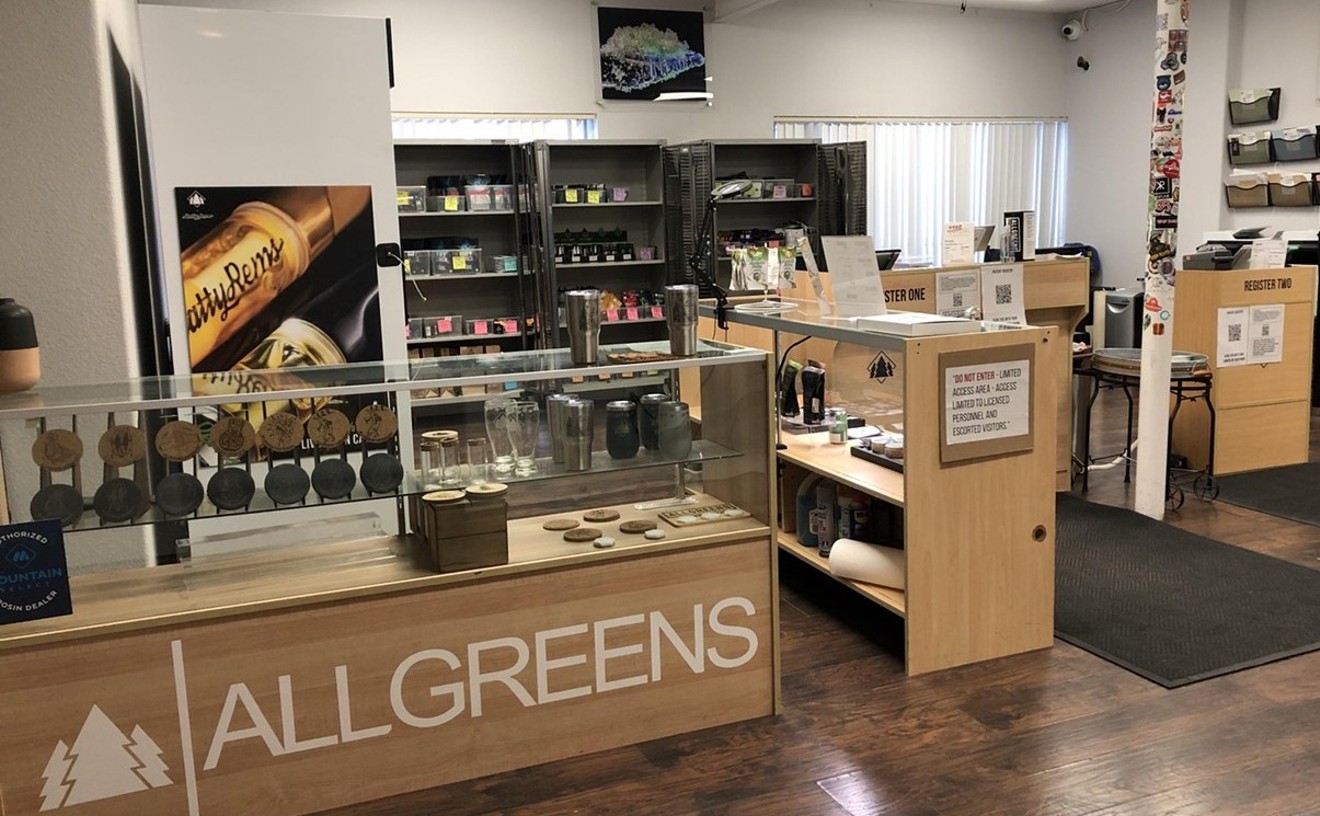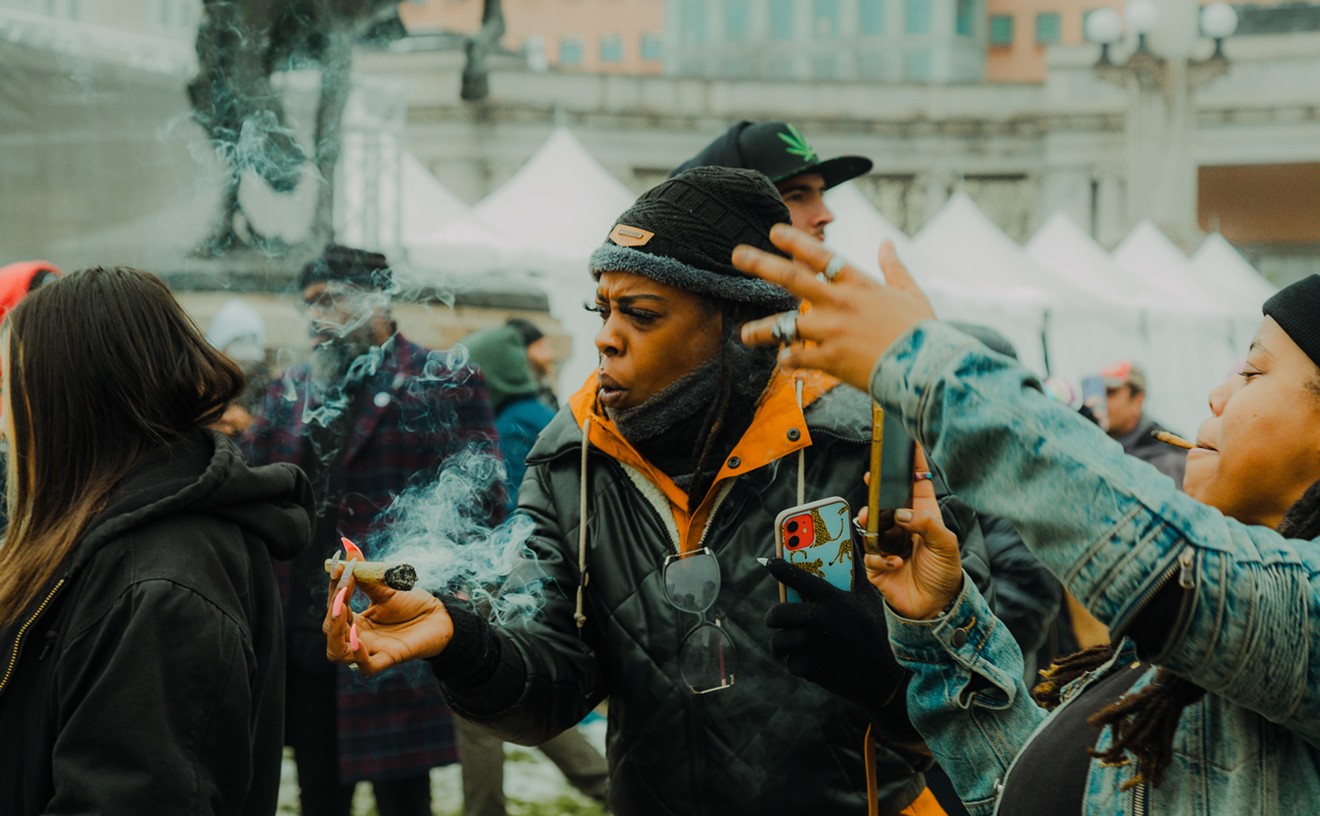University of Denver professor Donald Burnes referenced a 2017 Metro Denver Homeless Initiative study that showed Denver hasn't seen an increase of homeless people whose last established residence was outside of Colorado since legal sales of recreational marijuana began.
"These are the best data we have about large numbers of people coming from outside the state of Colorado into the Denver metro area because of cannabis and legalized recreational marijuana," he told the council. "We simply have not had a major increase in the numbers of people." Burnes added that he doesn't believe the study is a complete representation of the homeless population, and said he prefers more localized studies, pointing to a St. Francis Center project that asked 119 of its day-shelter guests about their reasons for moving to Denver.
"Of that group, only 5 percent said their primary reason for moving here was because of marijuana," Burnes noted. "There are no data that I am aware that indicate that there's a substantial increase in homeless due to legalized recreational cannabis."
Councilmembers still had concerns, though, citing countless interactions with law enforcement agents. "Our Denver police outreach officers will tell rooms full of people about the homeless people who tell them they come here because of marijuana," explained councilwoman Robin Kniech. "It doesn't mean in our community that we can let ourselves off the hook" just because a study doesn't show a solid connection, she added.

University of Denver professor Don Burnes doesn't think the data is strong enough to blame legal pot for rising homlessness yet.
Denver8TV
McGettigan cited data from the Pueblo Sierra Club and Pueblo’s Energy Future, reporting that Black Hill's rising utility costs had resulted in more than 7,000 Pueblo families having their utilities cut off in 2016. "If you cut off utilities to 20 percent of families, you're going to see an increase in homelessness," he added.
At least one homeless demographic has a direct correlation to legal pot, though, according to Urban Peak executive director Christina Carlson, and that's young people. Carlson heads the organization's efforts to reach out to Denver's young homeless individuals while enrolling them in programs to get them employment and housing, surveying their histories and current living situations along the way.
Carlson told the council that 22 percent of the youth they serve said cannabis law influenced why they chose to move to Denver. "We did a spike around the legalization of recreational cannabis of the youth coming in, but they weren't necessarily reporting that," she said. "It doesn't mean that's why they chose to be here, but it did influence their decision."
One noticeable factor for youth was employment, Carlson noted, explaining that some younger people move to Colorado looking for work in the burgeoning pot industry without knowing the age and background qualifications they must meet to be hired by a licensed cannabis business.
Burnes, founder of DU's Burnes Center on Poverty and Homelessness, would like to see all of Denver's $21-plus million in pot-tax revenue go toward fighting homelessness. "I know there are competing demands for this revenue, and one of the competitors is the field of education," he said. "So I would like to propose that the revenue be used for improving services for school-aged children experiencing homelessness."
Councilwoman Karen Black, chair of the committee, echoed Burnes. "I agree 100 percent that this [tax revenue] should go toward housing and homelessness," she said. The City of Denver's 2018 budget currently includes $1.8 million for affordable housing.
Covered to a lesser extent during the meeting were youth usage rates, edibles potency and packaging, social consumption and the concentration of cannabis businesses in Denver's low-income neighborhoods. All of the committee members agreed that there is a need for more comprehensive information because of the lack of baseline data available before 2012, when Colorado voters approved legalizing recreational pot.
"We all have a lot of anecdotal data, which is not a good way to make decisions or policies," Black said.
The council's Marijuana Committee includes every member of Denver City Council; it has met every month this year to discuss proven and potential consequences from legalizing recreational cannabis. Next year, the committee will only meet once per quarter, with a smaller group of councilmembers.












